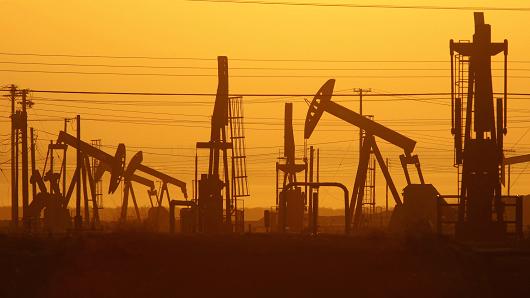As the world's second largest importer of oil, higher oil prices could pose a threat to China's economic growth story, Bank of America Merrill Lynch analysts have said.
Brent crude oil prices jumped in early June as violence in Iraq - the Organization of the Petroleum Exporting Countries' second largest oil producer - triggered supply disruption concerns. Prices of Brent crude rose around 5 percent from the end of May to around $115 per barrel on June 19, the highest level since last September.

Prices have eased slightly, but at $111 per barrel stand above their January-to-May average of $108.
Over the past few weeks, the al-Qaida-inspired Islamic State of Iraq and the Levant (ISIL) have fed off the chaos of neighboring Syria's civil war to seize control of a large chunk of territory in Iraq, effectively erasing the border between the countries in the process.
"The recent violence in Northern Iraq has raised
questions on the potential impact of higher oil prices and an oil supply
shock on the Chinese economy," Bank of America Merrill Lynch analysts
said in a note published Thursday.
The bank estimated that if Brent oil prices rose 10 percent annually -
which would mean Brent crude prices of $122 per barrel by year end -
China's economy could take a hit.
More specifically, China's consumer price index (CPI) could rise by 0.2 percentage points, its current account surplus could fall by 0.2 percent of gross domestic product, and gross domestic product (GDP) growth could be negatively impacted by about 0.1 percentage points.
While the impacts seem meager on a statistical basis, these concerns come amid concerns about slowing growth in the world's number two economy, as authorities attempt to promote a slower, more consumption driven level of growth.
As a result, China's annual GDP growth weakened to 7.4 percent in the first quarter from 7.7 percent in the final quarter of last year.
But other analysts said that China's fuel market operates differently to other parts of the world, because retail fuel prices are partly controlled by the government, meaning China could be partially immune to rising prices.
"In the past, gasoline prices went up much less
[in China] than what seen in the U.S. or Hong Kong when oil prices
spiked. Beijing has been trying to make changes lately, but I still
think that oil companies' profits will be affected more than retail
gasoline prices, in the case that oil prices move up a lot," said Dong
Tao at Credit Suisse.
"Of course, China's the largest oil importer. Oil prices going up is not good news, as someone has to pay for it," he added.
A 10 percent rise in oil prices was not BoA Merrill Lynch's base case scenario, however.
The bank's commodity research team estimated that Brent prices would average $106 per barrel in 2014, but warned that there were upside risks to oil prices if the situation in Iraq stagnates.
"In the unlikely scenario where the Islamiq State of Iraq and Syria (ISIS) temporarily enters Baghdad, Brent could head $10-15 per barrel higher. And in the highly unlikely scenario where '2.6 million barrels of Iraqi exports are disrupted', the impact would be more severe and Brent could rise $40-50," said the analysts.
China's net oil imports accounted for 58 percent of its total oil consumption in 2013, and Iraq accounted for 8.3 percent of China's total imports and 4.8 percent of its consumption. Furthermore, its dependence on imports has risen to 58 percent in 2013 from 28 percent in 2000.
However, it's important to note that oil is not China's primary source of energy, coal is. China's oil consumption growth slowed to 3.4 percent in 2013 from a peak of 12.5 percent in 2010 and an average of 7.8 percent in 2000- 2010.



